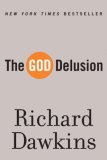Summary | Excerpt | Reviews | Beyond the Book | Readalikes | Genres & Themes | Author Bio

Critics' Opinion:
Readers' Opinion:
First Published:
Sep 2006, 416 pages
Paperback:
Jan 2008, 464 pages
 Book Reviewed by:
Book Reviewed by:
BookBrowse Review Team
Buy This Book
Our padre is an old sky
pilot, Severely now they've clipped his wings,
But still the flagstaff in the Rect'ry
garden Points to Higher Things.
In another time and place, that boy could have been me under the
stars, dazzled by Orion, Cassiopeia and Ursa Major, tearful with the unheard
music of the Milky Way, heady with the night scents of frangipani and
trumpet flowers in an African garden. Why the same emotion should have led
my chaplain in one direction and me in the other is not an easy question to
answer. A quasi-mystical response to nature and the universe is common
among scientists and rationalists. It has no connection with supernatural
belief. In his boyhood at least, my chaplain was presumably not aware (nor
was I) of the closing lines of The Origin of Species – the famous 'entangled
bank' passage, 'with birds singing on the bushes, with various insects flitting
about, and with worms crawling through the damp earth'. Had he been, he
would certainly have identified with it and, instead of the priesthood, might
have been led to Darwin's view that all was 'produced by laws acting around
us':
Thus, from the war of nature, from famine and death, the most exalted object
which we are capable of conceiving, namely, the production of the higher
animals, directly follows. There is grandeur in this view of life, with its several
powers, having been originally breathed into a few forms or into one; and that,
whilst this planet has gone cycling on according to the fixed law of gravity,
from so simple a beginning endless forms most beautiful and most wonderful
have been, and are being, evolved.
Carl Sagan, in Pale Blue Dot, wrote:
"How is it that hardly any major religion has looked at science and concluded, 'This is better than we thought! The Universe is much bigger than our prophets said, grander, more subtle, more elegant'? Instead they say, 'No, no, no! My god is a little god, and I want him to stay that way.' A religion, old or new, that stressed the magnificence of the Universe as revealed by modern science might be able to draw forth reserves of reverence and awe hardly tapped by the conventional faiths."
All Sagan's books touch the nerve-endings of transcendent wonder that religion monopolized in past centuries. My own books have the same aspiration. Consequently I hear myself often described as a deeply religious man. An American student wrote to me that she had asked her professor whether he had a view about me. 'Sure,' he replied. 'His positive science is incompatible with religion, but he waxes ecstatic about nature and the universe. To me, that is religion!' But is 'religion' the right word? I don't think so. The Nobel Prize-winning physicist (and atheist) Steven Weinberg made the point as well as anybody, in Dreams of a Final Theory:
"Some people have views of God that are so broad and flexible that it is inevitable that they will find God wherever they look for him. One hears it said that 'God is the ultimate' or 'God is our better nature' or 'God is the universe.' Of course, like any other word, the word 'God' can be given any meaning we like. If you want to say that 'God is energy,' then you can find God in a lump of coal."
Weinberg is surely right that, if the word God is not to become completely
useless, it should be used in the way people have generally understood it: to
denote a supernatural creator that is 'appropriate for us to worship'.
Much unfortunate confusion is caused by failure to distinguish
what can be called Einsteinian religion from supernatural religion. Einstein
sometimes invoked the name of God (and he is not the only atheistic
scientist to do so), inviting misunderstanding by supernaturalists eager to
misunderstand and claim so illustrious a thinker as their own. The dramatic
(or was it mischievous?) ending of Stephen Hawking's A Brief History of
Time, 'For then we should know the mind of God', is notoriously
misconstrued. It has led people to believe, mistakenly of course, that
Hawking is a religious man. The cell biologist Ursula Goodenough, in The
Sacred Depths of Nature, sounds more religious than Hawking or Einstein.
She loves churches, mosques and temples, and numerous passages in her
book fairly beg to be taken out of context and used as ammunition for
supernatural religion. She goes so far as to call herself a 'Religious
Naturalist'. Yet a careful reading of her book shows that she is really as
staunch an atheist as I am.
Copyright © 2006 by Richard Dawkins. Reprinted by permission of Houghton Mifflin Company





The Flower Sisters
by Michelle Collins Anderson
From the new Fannie Flagg of the Ozarks, a richly-woven story of family, forgiveness, and reinvention.

The House on Biscayne Bay
by Chanel Cleeton
As death stalks a gothic mansion in Miami, the lives of two women intertwine as the past and present collide.

The Funeral Cryer by Wenyan Lu
Debut novelist Wenyan Lu brings us this witty yet profound story about one woman's midlife reawakening in contemporary rural China.
Your guide toexceptional books
BookBrowse seeks out and recommends the best in contemporary fiction and nonfiction—books that not only engage and entertain but also deepen our understanding of ourselves and the world around us.